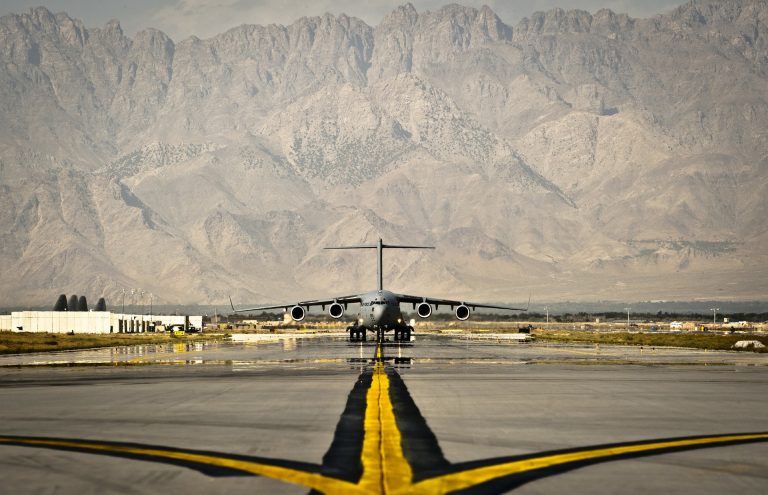When the Biden administration ended America’s military presence in Afghanistan, it also abandoned the Bagram air base located in the country. Many security experts have criticized the decision, pointing out that the base might have been a significant asset for the United States in its war against terror.
In an interview with The Epoch Times, Dan Steiner, a retired U.S. Air Force colonel and global strategist, stated that the base would have allowed Washington to counter Chinese expansion in the region. Recent reports suggest that China is building three missile silo sites in cities located in Western China.
If Washington had maintained the Bagram airbase under its control, it would have proven to be of “strategic advantage” in keeping an eye on these sites. With the United States out of Afghanistan, Beijing will try its best to keep Washington out permanently.
“To prevent the United States from finding an excuse to return to Afghanistan to reoccupy an airbase that is so strategically close to the Chinese regime’s nuclear weapons program… it’s not out of the question for the Chinese communists to want a footprint at this location sooner than later,” Steiner said.
An ideal scenario for the CCP to occupy the base would be to develop Bagram as a transportation hub. Beijing has already used the tactic at Pakistan’s Gwadar Port. Though the Maritime Secretary of Pakistan has administrative control of the port, it is actually operated by China Overseas Port Holding. Beijing can also use the excuse of a terror threat to Bagram and Western China to take control of the airbase either directly or indirectly.
Success
You are now signed up for our newsletter
Success
Check your email to complete sign up
According to retired Brigadier General Don Bolduc, who served ten tours with the U.S. Army in Afghanistan between 2001 and 2013, China is also eyeing the “big business” opportunity provided by Afghanistan’s rich mineral deposits. The “less sophisticated, less bureaucratic government” of the Taliban would play to the advantage of Beijing.
Afghanistan is estimated to contain around $1 to $3 trillion worth of mineral deposits, including rare earths like neodymium, lanthanum, cerium, and other metals like gold, aluminum, and lithium. These minerals form a critical component of many of today’s tech products. Having access to these deposits will only strengthen China’s hold over the rare earths market globally.
In an interview with CNBC in August, Shamaila Khan, director of emerging market debt at AllianceBernstein, stated that the Taliban’s access to Afghanistan’s resources is a “very dangerous proposition” for the world.
“It should be an international initiative to make sure that if any country is agreeing to exploit its minerals on behalf of the Taliban, to only do it under strict humanitarian conditions where human rights, and rights for women are preserved in the situation,” Khan stated.
Steiner notes that Washington’s negotiations with the Taliban should have pushed for retaining control at Bagram, akin to the arrangement the United States has in Iraq and northern Syria. This was the only way to ensure that the Taliban would not go back to its original ways and that Afghanistan would once again not end up being a haven for terrorists, he says.
In a recent interview with Fox News, former President Donald Trump revealed that he did not intend to hand over the airbase to the Taliban. “We would have kept Bagram because it is next to China… And it is one hour away from their nuclear facility, and we gave that up too… And now China’s going to take over Bagram, in my opinion,” Trump said.
The Biden administration removed all American forces from Bagram in July. In August, the Taliban freed thousands of ISIS-K prisoners who were being held at the airbase.
















